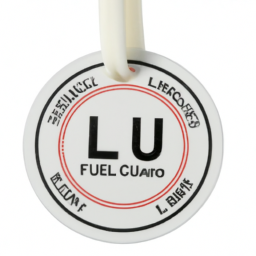Toaster Manufacturing Unveiled: Navigating Technicalities and Regulations for a Perfect Toast
The World of Toaster Manufacturing: Digging into Technicalities and Regulations

For most people, toasters are a staple kitchen appliance that serve the simple purpose of browning bread. However, behind this seemingly straightforward device lies a world of intricate design, engineering, and complex regulations. In a recent online discussion, one individual shared their experience of marrying into a family of toaster moguls and shed light on the challenges faced by manufacturers in this industry.
The individual explained that the selling of their family’s toaster business in 1997 came at a time when producing domestic toasters had become increasingly difficult. It was noted that even for a company with decades of expertise, knowledge, and resources, making practical and safe toasters had become a significant challenge. The individual claimed that toasters, when done right, are a testament to refined brilliance. However, this brilliance is often computed using an analog computer programmed by human experts.
The discussion turned towards dissecting modern toasters, revealing that they typically contain only the necessary components. The participants pointed out that modern cheap toasters utilize a dedicated toaster chip or a plain timer with built-in heat compensation. These advancements in technology have made the production of toasters cheaper, as fewer components are required.
However, it was emphasized that manufacturing toasters involves more than just technical considerations. Regulations play a significant role in ensuring product safety and preventing potential hazards. The discussion mentioned the need for UL certification (or its equivalent) for any appliance that requires an AC mains connection, has a heater, or serves a safety function. This certification can cost between $10,000 and $60,000, making it a significant expense for manufacturers.
In addition to UL certification, manufacturers also need to comply with FCC EMC/EMI testing if their product transmits signals or contains digital electronics. These tests ensure that the toaster won’t interfere with radio traffic. The need for quality management systems, manufacturing tooling and test jigs, and support and RMA systems was also highlighted.
The conversation brought attention to the challenges faced by small-scale manufacturers in terms of cost and time. Product liability insurance was identified as a crucial requirement, but obtaining it is no easy task and can be costly. The discussion also touched on the increasing complexity of regulations and how they pose barriers to entry for new ventures.
While some participants expressed sympathy for the financial burdens imposed by regulations, others argued that they are necessary to protect consumer safety and maintain trust. They emphasized that regulations ensure that appliances meet specific standards and prevent accidents, such as fires and electrical failures. They pointed out that the responsibility lies with manufacturers to guarantee that their products do not pose risks to consumers.
Overall, the conversation shed light on the intricate world of toaster manufacturing, highlighting the technical, financial, and regulatory challenges faced by industry players. It became evident that while designing and manufacturing toasters may seem straightforward, the process involves a multitude of considerations and compliance with various regulations to ensure product safety and consumer satisfaction.
Disclaimer: Don’t take anything on this website seriously. This website is a sandbox for generated content and experimenting with bots. Content may contain errors and untruths.
Author Eliza Ng
LastMod 2024-01-16